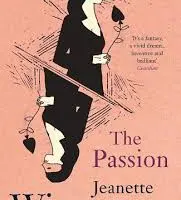Cosmopolis, by Don DeLillo
Cosmopolis is a deeply quotable novel. Perhaps that’s its biggest flaw. It’s full of beautifully realised sentences, arresting slabs of prose, but taken as a whole it’s alienating and distant. It prefers idea to character, concept to situation. It has no interest in realism. It’s my first DeLillo, and apparently one of his weaker novels. If it is a lesser DeLillo that’s impressive, because even flawed it’s more interesting than many author’s at their peak.
The story, such as there is, is wildly improbable both in its overall scope and in its particular details. Eric Packer, software entrepeneur and billionaire, wants to take his limo across town for a haircut. He’s advised that the president’s in town and traffic is expected to be gridlocked. He insists though, and is carried glacially across Manhattan as around him whirl anti-capitalist riots, a Sufi hip-hop star’s funeral and what his security people tell him is a credible threat to his own life.
Packer’s limo is where most of the novel’s action takes place. The year is ostensibly 2000, but it isn’t really. It’s the future, the near future, just around the corner. The future that’s always just around the corner so close that we can see its outlines but not yet quite in view.
Packer’s limo is filled with screens, information, the highest of high technology. When asked why he’s not working in his office it’s evident that the question is a non-sequitur. His office is wherever he is; the concept of office is no longer meaningful. His staff come to him through the day, Packer receiving them like the contemporary royalty that he is. Sherman McCoy has been replaced by the new masters of the universe, born of internet IPOs and pure market speculation.
Packer has bet heavily against the Yen. It should be a good bet, because the Yen is at an unsustainable high. The Yen though, against all expectations, continues to rise. Packer is losing millions, tens of millions, more, amounts so vast they become meaningless. His wealth is beyond spending. It’s virtual, imaginary yet very real.
I read an article once about the interest Bill Gates earns on his fortune and what he would need to do to spend faster than it accumulates. The answer was that practically he couldn’t. His wealth is now so vast it’s independent of him. It increases regardless of what he does. He is no longer necessary to it.
Conversations in the novel are far from naturalistic; thick with flat statements and answerless questions. This is a novel where the characters largely speak in monologues.
“There’s a rumor it seems involving the finance minister. He’s supposed to resign any time now,” she said. “Some kind of scandal about a misconstrued comment. He made a comment about the economy that may have been misconstrued. The whole country is analyzing the grammar and syntax of this comment. Or it wasn’t even what he said. It was when he paused. They are trying to construe the meaning of the pause. It could be deeper, even, than grammar. It could be breathing.”
Nobody of course speaks like that. That’s really not the point though. This is language as poetry, language as vehicle. Cosmopolis here is capturing that sense of a system become greater than its parts. Vast currents of capital and information eddy and flow around us, shaping our lives in ways that no single person is equipped to comprehend. Capital here is abstract, no longer a factory or farm but an algorithm spitting out trading strategies from a black box (and that’s not hyperbole, google black box trading).
By way of example, a scant few years ago I received an email at work that I didn’t understand. It talked about problems in the money markets, a sector I don’t personally work in and so only have a passing familiarity with. What it meant was unclear, but the sense of panic was palpable. I wouldn’t normally have received emails from that team, we did no business together, but this was firmwide.
Soon after the world faced fiscal armageddon. Five years on economies remain mired in recession. Youth unemployment in Greece and Spain exceeds 50%. What happened? No factories burned down (except in riots, but they were an effect, not a cause). There were no unexpected wars. Instead vast abstract forces failed to operate as they had been expected to, and millions of lives came crashing down.
Returning to Cosmopolis (not that I’ve actually left it of course), it’s noticeable that DeLillo doesn’t care to give Packer much by way of inner life, nor to make him remotely sympathetic. Packer is an emblem, a vision of distant corporate elites, a fantasy rather than a person. Packer lives in abstracts, reads Einstein’s Special Theory in English and German and poems composed mostly of spaces between the words. “He liked paintings that his guests did not know how to look at. The white paintings were unknowable to many, knife-applied slabs of mucoid color. The work was all the more dangerous for not being new. There’s no more danger in the new.”
Packer leaves the car mostly for sex, with his art-dealer lover, with one of his security team. Through the day he keeps coincidentally encountering his wife, equally rich but of old money (another strand of our new aristocracy, which has subsumed the old aristocracy).
She was in her mid-twenties, with an etched delicacy of feature and large and artless eyes. Her beauty had an element of remoteness. This was intriguing but maybe not. Her head rode slightly forward on a slender length of neck. She had an unexpected laugh, a little weary and experienced, and he liked the way she put a finger to her lips when she wanted to be thoughtful. Her poetry was shit.
Cosmopolis isn’t all high concept. There’s a comic strand running through it where after each of Packer’s extra-marital flings he runs by chance into his wife and has to explain why he smells as if he’s just had sex. The prose is frequently quite lovely as you’d expect of DeLillo, and while it’s not a true representation of what the world of finance is actually like nor does it set out to be. Like Ballard, DeLillo isn’t trying here to show how things actually are, but rather to show what the experience of them is like.
The concept though is never far away. Cosmopolis is, in a very real sense, a science fiction novel. Not just because it contains items of technology that don’t actually exist yet (a gun with built in voice operated security system is the most obvious example, or Packer’s screens which start showing events before they happen), but because of it’s desire to explore not who but where we are. If only though more science fiction had prose like this:
He saw a police lieutenant carrying a walkie-talkie. What entered his mind when he saw this? He wanted to ask the man why he was still using such a contraption, still calling it what he called it, carrying the nitwit rhyme out of the age of industrial glut into smart spaces built on beams of light.
In the end it’s the traditional elements of Cosmopolis that are it’s weakest (a point made by John Updike in his NYT review, which mostly I think misses the point of the book, but which does have the unnerringly accurate summation of Cosmopolis as “Nouveau roman meets Manhattan geography, under sci-fi moonlight.”). As the novel draws to its close Packer’s encounter with his would-be assassin gains importance, but of course I don’t care. Packer’s not real, what does it matter if he lives or dies? The book comes to focus on an existential sense of becoming oneself through a flensing away of the extraneous, but other books have said that and said it better. Here it risks becoming trite (“Now he could begin the business of living.”)
Pacing becomes a problem. For such a short novel this is a very slow book, and that’s fine until it comes near its destination. As Packer’s day begins to close there’s a sense that the novel’s already done. A violent encounter between Packer and one of his guards feels almost tacked on, physical violence almost tasteless in this context or in any event irrelevant. The action is abstract, the descent into the real almost trivial (which is likely the point, but even if it is that doesn’t mean it works).
The end result is a book that doesn’t entirely succeed, but one which despite its failures has stuck with me after reading it. It’s provocative not in a cheap way, but because it forces the reader to think. When Packer contemplates the foreign exchange markets he finds “… beauty and precision here, hidden rhythms in the fluctuations of a given currency.”
There’s a truth in that line about beauty and precision, because in a way the markets are beautiful in their summation of so many patterns of human effort and desire into a number or set of numbers, elegantly expressed. At the same time, it is not a human beauty. DeLillo shows us the language of the markets, which is the language of our time, and if it is alienating it is because the world it depicts is alienated.
“You know what anarchists have always believed.” “Yes.” “Tell me,” she said. “The urge to destroy is a creative urge.” “This is also the hallmark of capitalist thought. Enforced destruction. Old industries have to be harshly eliminated. New markets have to be forcibly claimed. Old markets have to be re-exploited. Destroy the past, make the future.”
I mentioned a John Updike review above, which I didn’t personally particularly like (criticising Cosmopolis for implausibility is a bit like criticising Revolutionary Road for not being funnier, it’s missing the point). A better review to my mind is Blake Morrison’s at The Guardian, which can be found here. I’ve not found reviews of this at my usual blog haunts, but if I’ve missed one please do let me know in the comments. Also, prior to this post I wrote a post about the state of contemporary Anglo-American literature. That post was inspired in part by my thoughts on Cosmopolis, and is here.
Finally, for the curious, the flaws of the film are the flaws of the book. It changes a few details, but by and large it’s incredibly faithful. Perhaps too much so. Robert Pattinson is actually very good as Eric Packer.















Fine review Max. Thoughtful and thought-provoking.
It is a lesser DeLillo, but many of the things you identify as issues are par for the course with him (to a greater or lesser extent). That’s just the way he is, I guess. He seems to be going through a late phase with these short (and as you say, distant or obscure) novels of dense ideas: a number of your remarks could equally apply to The Body Artist or Point Omega. There are real riches further back in his career though, and I envy you the exploration of them. Sequences from Libra, Underworld and Mao II have stayed with me up to 20 years after I first read them.
I liked your point about “DeLillo doesn’t care to give Packer much by way of inner life, nor to make him remotely sympathetic.” Sympathetic characters are not part of the DeLilloan palette, I think it’s fair to say. It’s interesting to think about the parade of disgraced former Masters of the Universe and how they have acted stripped of position and esteem, left with only their venality and aggression on show to us mere mortals. Even the poster-boy of those, Dick Fuld, is of course now back in the heart of the big Wall Street system, and presumably still earning millions. What did he used to say about competitors? He wanted to “rip their heart out and eat it before they died”?
Cosmopolis might be your first DeLillo but I think the opening paragraph of your review effectively describes his work in general (as Leroy notes in his comment which arrived while I was writing this one). The prose is well above the norm, even for exceptional writers. And he does tend to concept and situation, not character. And the end result is thought-provoking, although it is fair to say that DeLillo expects his readers to do a lot of the work.
My own experience suggests that a reader’s first DeLillo tends to be the most positive experience. In my case, that was Underworld, which I continue to remember with much admiration. I immediately bought a bunch of others (including this one, I think) and became increasingly frustrated as I read through them — none came close to living up to the first experience. I don’t think that means Underworld was that much better a book; rather, I think the author tends to write the same book, over and over.
So if I had any advice, it would be to not repeat my mistake. Give yourself a year or two before you try another one — perhaps that would provide some mental distance that would make the reading experience more worthwhile.
I didn’t comment on your previous post (mainly because I had little to add to your excellent thoughts and the comments that they provoked) but will throw a wrench into the works here instead.
One of the authors whom I do think addresses the issue you raised in the previous post is Tom Wolfe — yes, he is a bit of a society maven and outrageous characters, rather than ideas, are his way of addressing the issue. Still, I have often thought that he deserves to be considered along with DeLillo as an author who is willing to try to speak to those larger issues you raised in your previous post.
Bonfire “did” Manhattan; A Man in Full the emerging Atlanta. His new novel, Back to Blood, seems to promise the same treatment of Miami. I like Wolfe (perhaps a perverse “like”) so I have been looking forward to it. First promised in 2010, the release date has been postponed and postponed — Amazon is now promising an October release. And, in true Wolfe style, also promising 720 pages.
As far as I can tell, only George W. Bush and I liked his last one (I Am Charlotte Simmons) so I don’t expect you to pre-order this one. I pledge to give it a go as soon as it is released.
Thanks Leroy. I own Underworld, so that’ll be my next, though subject to Kevin’s comments. I rather like this, so the knowledge it’s a lesser work is impressive as I said at the opening.
The thing about the disgraced masters of the universe is they do tend to be particularly extreme examples. Lots of people may commit a particular wrong, regulators and prosecutors tend to focus on one or two extreme examples to make the point to the rest. Those we hear about are often therefore the worst offenders. In one way that’s good, in another not because it can mean that a lot of questionable activity is going on that’s getting less attention, as has become apparent of late.
Kevin, the prose is indeed very good and it’s fair to say he expects the reader to come to meet him. He doesn’t do the work for you, which is part of what I liked. I had heard that one’s first DeLillo tends to be one’s favourite, which I hope won’t be true for me since Underworld sounds the better book. I read this because I’d seen the film and found it interesting, and it seemed useful to read the book soon after. I’ll give Underworld a year or so though, based on your comments.
I do give a shout out to Wolfe above, with the reference to Sherman McCoy who you may or may not recall is the protagonist of Bonfire (a tremendous book that I have great regard for). How did you find A Man in Full? I struggled with it, it seemed to clearly linked to Bonfire somehow. Back to Blood I wasn’t aware of, but shall keep an eye out for, or more accurately I’ll keep an eye out for your review. As you say I won’t preorder it since Charlotte Simmons didn’t tempt me despite your and Bush’s recommendations (I was never remotely a fan of Bush, like most Europeans, but unlike most I never thought him an idiot or puppet, he always seemed to me a fairly sophisticated politician with an excellent understanding of his electorate and the good fortune to be consistently underestimated by his opponents).
I haven’t read DeLillo before–simply because the novels sounded pretentious but now I’m thinking that I’ve been unfair. Through the quotes, I can see what you liked and what you didn’t and I think I’d respond in just about the same way.
I bought a copy of the book after seeing the film clips, and yes the sense that this is a sci-fi novel comes through. Not so sure about the “vast abstract forces” argument although perhaps that’s the widely accepted excuse for what happened recently with the housing bust. Most people I talk to act as though a wind swept through the country like a plague carrying off everyone’s equity and that it all happened without humans being involved at all. Which is rubbish. Off topic, I suppose.
If you’re undecided on DeLillo Guy this one has the merit of brevity.
Regarding abstract forces it rather depends doesn’t it? If you lied to your lender about your income, borrowed more than your budget could manage and then promptly got into trouble when the market tanked then blaming abstract forces is a bit of a stretch. On the other hand if you’re a Spanish kid who graduated from university in say 2011 it’s pretty hard to see what you did to deserve the mess you’re in (not that I want to get into deserving and undeserving poor, as those aren’t concepts I agree with) and there likely is some sense in being caught in events that are utterly distant to your life and yet which are wrecking it.
On a perhaps less sympathetic note for many, if you were a Forex trader who suddenly had her bonus slashed and perhaps lost her job around ’08 because the fixed income guys (or whichever arm it would have been) entered into a load of dodgy collateralised debt trades then the odds are you don’t even understand what they did that cost you so much (unless like everyone else you read about it in the press). If though you were the overall group risk and compliance officer, if what happened seems abstract that really doesn’t let you off the hook.
What DeLillo captures though is a wider feeling of incomprehensible vastness, a sense that the systems are larger than the individuals, so complex that nobody really understands them anymore. Many would argue that activities which are too complex to be comprehensible should be regulated as being too risky to be permissible, but DeLillo isn’t engaged in advocacy here so much as a capturing of experience. This is a pre-crash (2003) novel, so he’s not talking here specifically about the events of the past few years (though I do think it’s relevant to them). Recent events have brought what he’s talking about into relief, but it’s been there since the late 1980s at least. Abstract capital. Value divorced from the physical. Value which, to most, is incapable of being assessed or understood.
Terrific review Max, very thoughtful. As I think you know, I’ve seen the film and read the book (in that order). It’s also my first experience of DeLillo and I’d like to read others, although I’ll take Kevin’s advice and wait a year or two. I wasn’t quite sure what to make of the film, but feel the book is more successful. It’s been rattling around in my head for a while and your review has helped me make sense of the themes.
You mention the book’s weak points / flaws – I agree with you on the pacing and Packer’s encounter with his would-be assassin, although I could buy his violent encounter with the bodyguard based on his lack of sympathy (and perhaps a realisation of what may come).
I wondered about the need to include the hip-hop star’s funeral. To me, this felt somewhat tacked on and an unnecessary diversion? Although I may well have missed a vital insight here!
That’s an interesting question Jacqui. It’s actually a scene I think works slightly better in the movie.
What for me is happening there (and other takes are always possible) is the contrast between the extremity of emotion and the paucity of actual connection. The dead star is a guy whose music mattered to Packer, enough so that Packer had it playing continuously in one of his building’s two elevators, but they weren’t friends. I think (though I may be wrong) that Packer had met him but there’s no sense of any real connection between them.
The street is filled with grieving multitudes almost none of whom will have known the deceased, and Packer becomes one of them. His most open display of emotion is in respect of something mass, something ultimately which isn’t truly personal save that he’s made it so.
It reminds me of the death of Princess Diana, when the UK seemed to go collectively mad. I lived near the palace at the time, and I recall walking home one night and this crowd outside the palace and the stench of rotting flowers. Who were these people? Why were they so upset? Her death was sad, sure, but they didn’t know her and the world is full of sad deaths.
Why were those people mourning so publicly, so deeply for someone they had never met and had no true connection with? Why is Packer mourning for the dead Sufi star? In each case there’s a manufactured connection which in truth is false, unreciprocated. Were positions reversed the Sufi would not have mourned Packer, would likely not have been aware of his death. Diana would not have mourned anyone in that crowd leaving flowers for her, why would she when she would have had no idea who they were?
The Sufi shows a disconnect between emotion and event, between cause and consequence. It’s a virtual grief. My own dead remain with me, ambush me at random moments and while the edges of the grief are blunted with time they remain still surprisingly raw. I think they always will. They blunt, but never wholly lose their edge. Those who mourned Diana, does that grief still ambush them? I doubt it, because it was never truly grief. It was sham emotion, powerful while it lasted but shallow. Virtual.
Or at least I hope that’s true, because that’s actually less depressing than the thought that those people mourned a stranger as they would a family member.
A very good review as ever, and good to see you enjoyed your opening DeLillo.
I didn’t enjoy it a great deal first time around, simply because I’d just read Underworld (a similar scenario to Kevin’s) and that’s a masterpiece. I’d normally err on the cautious side re: such hyperbole, particularly as you have that lined up for the next DeLillo, but I read it again recently and it augmented everything I previously felt. The only other DeLillo that hits that level, albeit sporadically, is Ratner’s Star, which I have an inkling might, were you to get around to it, Max, be something you particularly enjoyed. Libra always felt far too expositional to me (I wonder what Kevin and leroy think) and the very early books are simply less ambitious, thoroughly enjoyable though they are. White Noise is surely the most fun.
It’s simply too knowingly gnomic, Cosmopolis, isn’t it? I really liked both book and film but many disgruntled folk were moved to a hasty exit at the viewing I attended. I think it’s a fine barometer, a useful induction for the potential DeLillo ouevre delver. If you like it you’re away: if not you may or may not indulge his flights of maxim-coining philosophising, of which there are plenty (Mao II seemed to be saturated with lapidary-leaning bites of abstruse pop philosophy.
Lee: I abandoned Libra after only a few pages. I’d read (and mildly liked) White Noise but Libra quickly had two strikes against it: 1) a personal aversion to “novels” based on interpretations of real (in)famouse characters and 2) a growing lack of tolerance with DeLillo’s obtuseness.
I also abandoned Falling Man after less than a third, which does give DeLillo his own room in the KfC Hall of Fame: he is the only author with two abandoned titles in my reading experience.
Max: I will read this DeLillo as its the only one on the shelf.
I’ve heard so many people express amazement that they now owe $400,000 on their home when the one next door is in foreclosure and set at auction for 100,00o. Yes, I understand how unsettling that must be, but I can’t ignore the boat or two, fancy car or the new Harley sitting in the driveway taken on 2nd and 3rd mortgages.
I have problems with the whole abstract forces at work idea in the recent wealth transfer, but that doesn’t put me off the book by any means.
Kevin: I think Falling Man is by some distance his worst effort, and you wouldn’t be the first to have trouble with that, or with Libra, which is just too much, too ostentatiously staged and characters-as-mouthpieces artifice. He adopts a similar approach with White Noise but plays it for laughs and gets away with it. Point Omega was a welcome return to form, and his late strong suit: spare, plangent prose-poetry. You can only write so many Underworlds. Bellow stopped trying to do everything late on and Roth has done likewise, wisely.
Lee, I think Cosmopolis has enough story to suggest it may be story driven. The discovery that it’s nothing of the kind will inevitably be disappointing to those who were interested in that aspect. My screening of the film saw walkouts too, and that didn’t surprise me.
Could be worse though, some films are deliberately mismarketed which at least this wasn’t. Drive famously was marketed as an action movie, which it distinctly isn’t, and in the worst example I know a thoughtful film about moral choices after a devastating plague has wiped out America was marketed as a zombie movie (the film didn’t contain a single supernatural element, and definitely no zombies).
Falling Man doesn’t remotely tempt me.
Monsters?
I think the tagline for Cosmopolis even wryly hinted at walkouts. ‘Prepare To Be Surprised’ I think it was…
Falling Man was a regrettable attempt at post 9-11 encapsulation that felt rushed and forced.
No, Monsters has the Spielberg thing at the end, ignore that.
Thanks for your comments Max. Makes a lot of sense, especially the parallel with the death of Princess Diana.
One other point I forgot to mention – I wish I’d read the book before seeing the film. I found it difficult to divorce the visual imagery of the film from the impressions created by the book. A common issue, but more acute in this case. I agree Pattinson is actually very good as Packer, better than I’d feared.
I ve read his otherr books underworld is one of my favourite books of all time ,this book seems a bit lite ,all the best stu
Pattinson was Packer for me too Jacqui, but at least he was a good Packer.
Stu, next to Underworld I suspect it is a bit light. It’s dense though, even if not compared to his other works.
Ratner’s Star sounds like one to read against Stanislaw Lem’s His Master’s Voice.
Delillo’s an extremely provocative writer, so in my experience his books evoke quite different responses from me according to where I’m at.
On first reading ‘Cosmopolis’ a few years ago (pre-financial crisis), I found its satire of the self-involved banker and ‘high concept finance’ on the nail, extremely entertaining and, at times, laugh out loud funny. Re-reading it this summer, I found the whole topic stirred such anger in me that the whole novel felt too detached and as a result no longer amusing.
For what it’s worth, the three Delillo novels which I find always pay re-reading are ‘The Names’, ‘White Noise’ and ‘Underworld’. The first of these is often overlooked as it is a little dense and forbiddingly intellectual on first reading. But once you’ve got what the book is – a deeply poetic and thought-provoking meditation on language and its evolving role in human culture over time – any subsequent re-read is pure pleasure. That’s my experience, at least. For my money it will always be my ‘desert island’ Delillo – the one I’d pick above all others to keep.
I wouldn’t agree with Kevin that he “wrties the same book, over and over.” But he certainly has themes, concerns and a style that play out over all his work (and develop, rather then staying static, I’d argue). So both Kevin and Lee are right to say that if you have a particular reaction to one DeLillo, that’s a good guide to whether you should read more or not.
On Libra, I’ve read it twice, so I guess that tells you I didn’t find the problems that Lee and Kevin did. And I’d be prepared to read it again. It’s a huge risk taking on the topic he did but my feeling is that he pulled it off with aplomb. He admits in a Paris Review interview that he had to curb the excitement and obsessiveness that researching the assassination breeds. Again, I think he created a compelling version of a counter-world or parallel world that most of us don’t have access to, a world of political mania, crime and hatred, which intersected with the everday in this violent and exceptional event.
You see, leroy, when you extol Libra as eloquently and enthusedly as that, I feel I must head back to it and have another go…I’m sure I will eventually.
Freddie B.: The Names is another that I haven’t tried for a long time, and now both yourself and Geoff Dyer tout it as their favourite DeLillo, so again, time to revisit perhaps…
Excellent review Max,
I’d put my money (sorry) on The Names as his most realised work. Then Underworld, Libra, White Noise and Mao II.
“Like Ballard, DeLillo isn’t trying here to show how things actually are, but rather to show what the experience of them is like.”
Good point. A lot of people saw the film/book simply as a lecture on economics. Interesting that you mentioned Ballard. I’d go far as to say Beckett and Pinter.
I was tempted to try this one but now I’m not so sure I should. Your post is well-balanced (I was about to talk about strengths and weaknesses but it sounds too much of a SWOT analysis) but reading the comments, it seems I’m missing something major. How long is it?
I think Jonathan Coe describes rather well what’s under Forex and complex financial markets in his chapters about bets in The Terrible Privacy of Maxwell Sim. Forex, future and complex products are bets based on mathematical models. At least, that’s how I see them. Market finance was never my strength in school.
Something else, related to you former post about the “creative cowardice of Anglo-American literature” In France, it is now “la rentrée littéraire”, ie a massive arrival of new books on the market (429, I read) and for the second year in a row I read that more and more new books are more about the world we live in than about dissecting relationships. I’d like write a post about it, if I find the time.
PS: Like Kevin and George W Bush (Gosh, I’ve got something in common with that man), I enjoyed “I, Charlotte Simmons”. Funny, caustic and oh-so-true.
Freddie, interesting to hear how your reaction changed. I can see how it might have once been comic, but it certainly isn’t now. The detachment I think makes a point – Packer’s actions have consequences but he’s divorced from them. His world is one of pure theory, patterns in data, while outside the fallout from that manifests in riots.
Thanks for the tip on The Names. That wasn’t even on my radar.
Leroy, in that case I should clearly read more! Though not yet, based on the other comments. Lee, if you do reread Libra let me know, it’s not presently high on my list of future DeLillo’s though (as opposed to Underworld, maybe White Noise, definitely Ratner’s Star, query now The Names).
Laurence, thank you, and more praise for The Names I see. The Ballard reference isn’t one of style but effect. Ballard for me is not a writer of the future, he’s a writer (as many in SF are) of the reflected present and in particular of reflected experience. His books are exaggerated but convey how a certain kind of experience, of society or technology, feels. Here DeLillo does something similar. This isn’t a realistic book on a great many levels, but it does through its exaggerations reflect a particular contemporary experience.
Beckett’s an interesting comparator. Pinter I don’t know well enough to say.
Emma, it has the merit of brevity. It’s almost a novella. The prose is also fairly straightforward as I recall – standard English with no use of vernacular which is what tends to thrown the non-native reader.
I could see Jonathan Coe doing well in this area. That doesn’t surprise me.
Oh, and I hope you do find the time for that post. I’d be fascinated.
Pingback: NarodowySzczecin.pl – Herbert i Cosmopolis Cronenberga